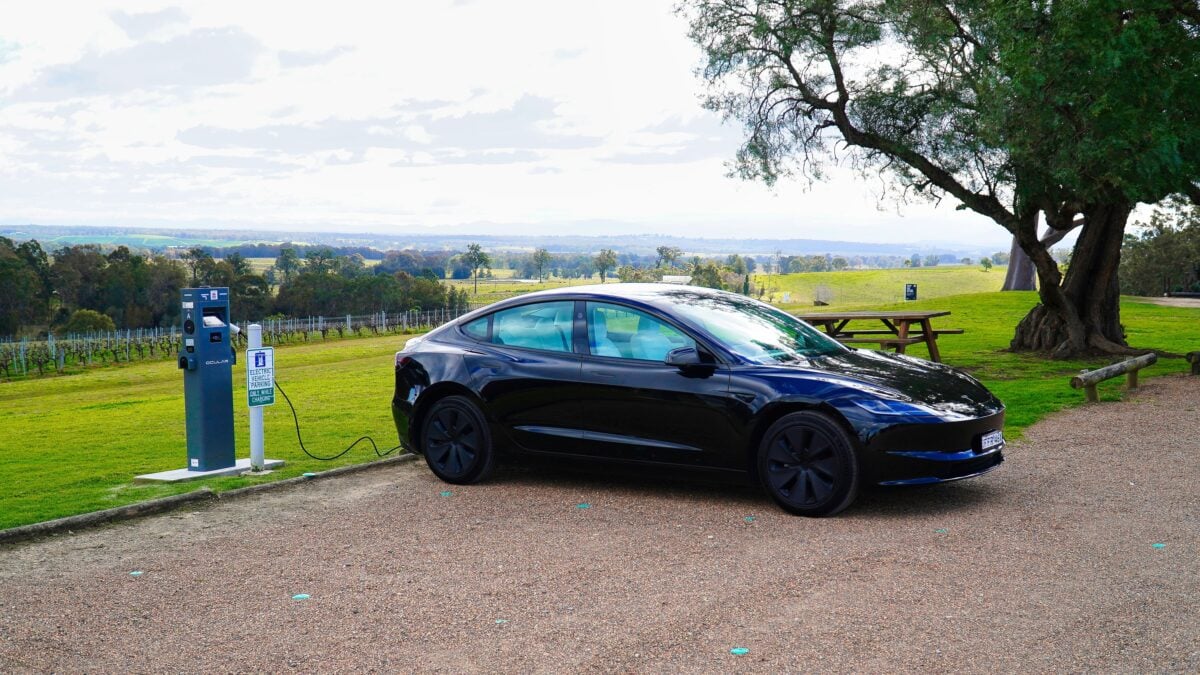TLDRs:
- Australia’s federal government is exploring EV road-user charges to offset declining fuel excise revenue.
- Experts predicted the revenue drop years ago, urging a per-kilometre charging model for all vehicles.
- Victoria’s failed EV tax highlights constitutional limits on state-imposed road charges.
- Leaders seek a fair system ensuring all drivers contribute to road upkeep equally.
Australia’s federal government is considering introducing road-user charges for electric vehicles (EVs) to counter a growing shortfall in fuel excise revenue.
Treasurer Jim Chalmers has confirmed ongoing discussions with state and territory leaders, with the issue set to feature prominently in next week’s government productivity roundtable.
Fuel excise has long been a key source of funding for road construction and maintenance. However, as more Australians transition to electric vehicles, this revenue stream is shrinking. Federal frontbencher Tanya Plibersek has called the proposal “sensible,” arguing that long-term funding solutions are essential to maintain the quality of national road infrastructure.
Not a Sudden Crisis, but a Long-Predicted Challenge
The looming revenue gap has been on policymakers’ radar for years. In 2018, when EVs made up only 0.1% of new car sales and Australia had just 476 public charging stations, transport economists warned that widespread EV adoption would inevitably erode fuel excise collections.
That early analysis proposed a “per-kilometre charging system” for both petrol and electric cars, ensuring every road user contributes proportionately to maintenance costs.
The fact that today’s federal conversations mirror these early recommendations suggests a planned policy transition, not a rushed reaction. This foresight has given the government time to study overseas models and design an approach tailored to Australia’s federal system.
State-Level Efforts Stalled by Legal Hurdles
Some states have already tested their own EV tax schemes. In 2023, Victoria attempted to introduce a two-cent-per-kilometre levy for EV users, but the High Court struck it down, ruling that such charges were unconstitutional at the state level.
This decision created significant uncertainty for other states considering similar measures and reinforced the need for a federally coordinated approach.
New Zealand offers a notable precedent, with its successful road-user charge system for EVs. However, Australia’s legal and political structure means that replicating this model would require a carefully negotiated national framework.
Balancing Fairness, Revenue, and Climate Goals
Supporters of an EV road-user charge, including Coalition senator Jane Hume, argue that fairness must be at the heart of the policy.
“EV drivers use the same roads as petrol and diesel drivers and should contribute equally to upkeep,” she noted.
Still, policymakers face the challenge of introducing such charges without discouraging EV adoption, a key pillar of Australia’s climate strategy. The federal government must balance fiscal sustainability with environmental commitments, ensuring that road funding remains reliable while the shift to cleaner transport continues.







